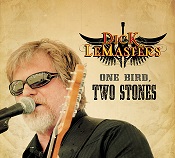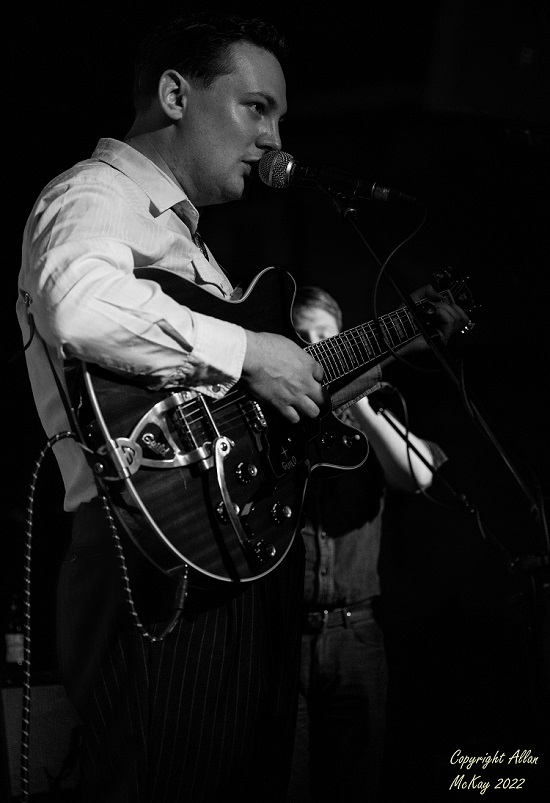
This probably needs a bit of explanation, mainly about the reason why Music Riot exists. What we’re about is promoting music that’s worth listening to but probably isn’t going to get too much mainstream attention. We know that we can’t make a difference for Springsteen or Dylan (not that either of needs any help) but we just might persuade a few people to listen to a Rob Heron album. The five favourites we’ve chosen are all albums that we’ve reviewed this year, so don’t expect to see anything mainstream there. What they have in common is that they’re all good (we don’t believe in negative reviews – there’s enough negativity without us adding to it) and they all deserve to be heard. In no particular order.
St Paul’s Boulevard – Michael McDermott
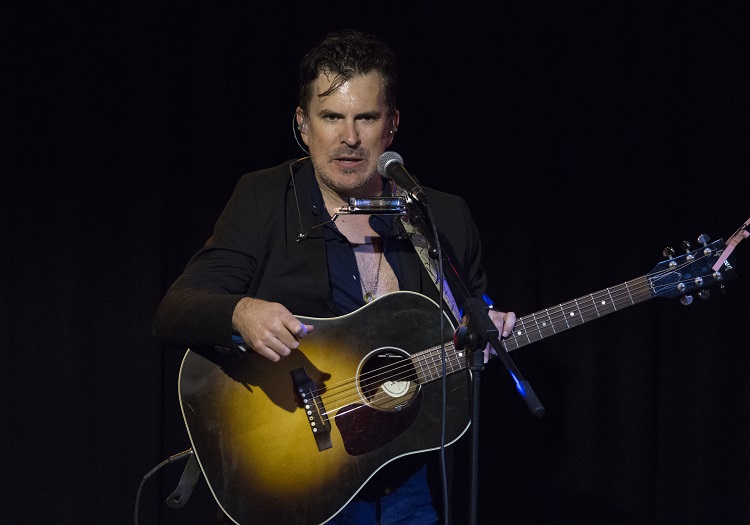
Michael’s been a big favourite at Riot Towers since The Westies ‘Six on the Out’ in 2016 and with good reason. He’s a great songwriter steeped in the tradition of American popular music, whatever the genre. He can also persuade great players to work with him (Will Kimbrough for example) on his albums. ‘St Paul’s Boulevard’ is an album that looks back with gritty realism at Michael’s difficult past, and forward to a positive with clear-eyed, multi-hued optimism. The title track’s a wonderful piece of work, harking back to Michael’s early Chicago days and describing one of those places we probably all have that were important to us because of the people we met there. And the great lyric: “None of the heroes around here have capes, they’re just talking in taverns and on fire escapes”.
‘Paper Hearts and Broken Arrows’ – Rod Picott
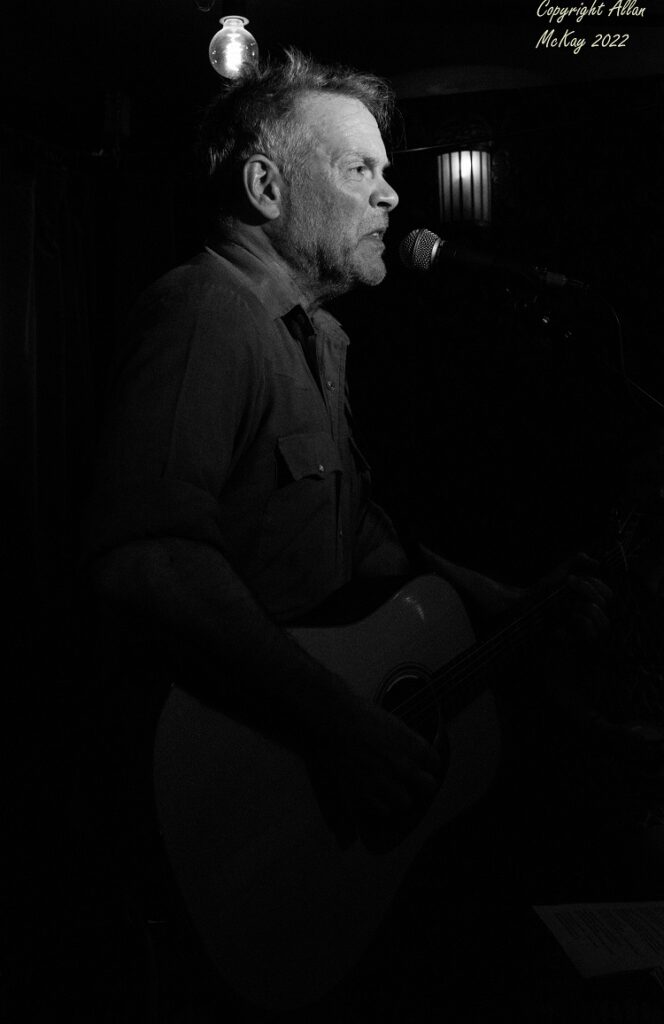
Like Michael McDermott, Rod is another Music Riot favourite. I should also say they’re both great people as well. ‘Paper Hearts and Broken Arrows’ is a potent mixture of songs that range from the very personal through social comment to the historical. ‘Revenuer’ has an interesting history; it’s based on a Taylor Brown novel about moonshine runners, but when Rod mentioned this to Taylor, he fessed up to stealing the idea from Steve Earle’s ‘Copperhead Road’. The other song that really caught our attention was ‘Sonny Liston’, Rod’s exploration of the complicated life of the heavyweight boxer. Let’s finish on a great lyric again: “Two big fists pumping like pistons, nobody punched like Sonny Liston”.
Every Seed we Plant’ – Alice DiMicele
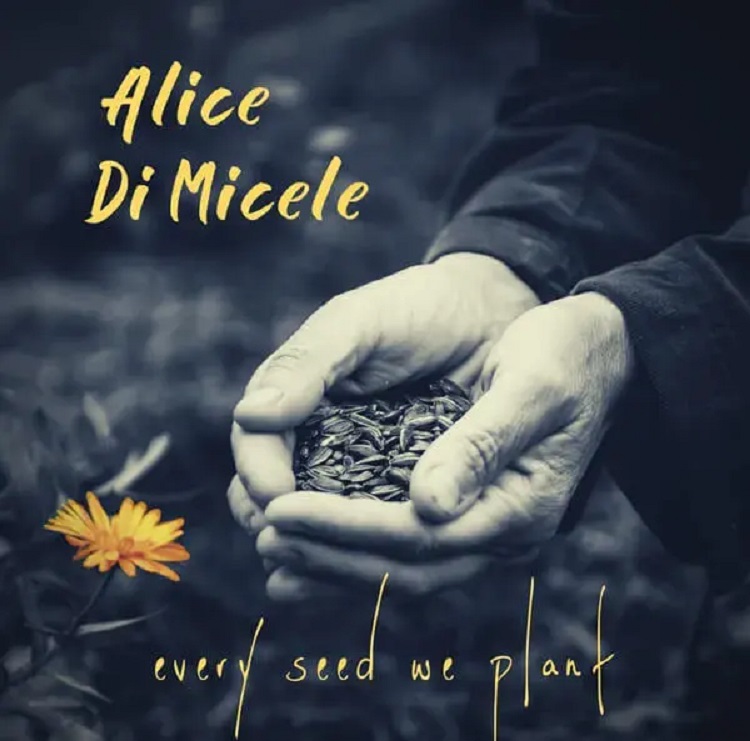
Alice’s sixteenth album is one of the many we reviewed in 2022 that’s influenced by the pandemic that we somehow managed to live through. The songs on the album have a huge emotional range, from raging anger to a heart-warming dog story. ‘Dispatch’ is a very angry song about the killing of a retired black Marine in his own home in White Plains, New York after mistakenly calling in a Life Aid medical alarm – it’s harrowing. ‘Dear Elaine’ is at the opposite end of the spectrum; it’s a tale of the healing relationship built between a woman and her dog. The album takes a journey from historic raw rage to a positive look into our future. Alice’s vocals need a mention as well; she has a huge dynamic range from a sweet whisper to a rock growl. There’s a bit of everything here.
‘Leo’ – Pete Gow
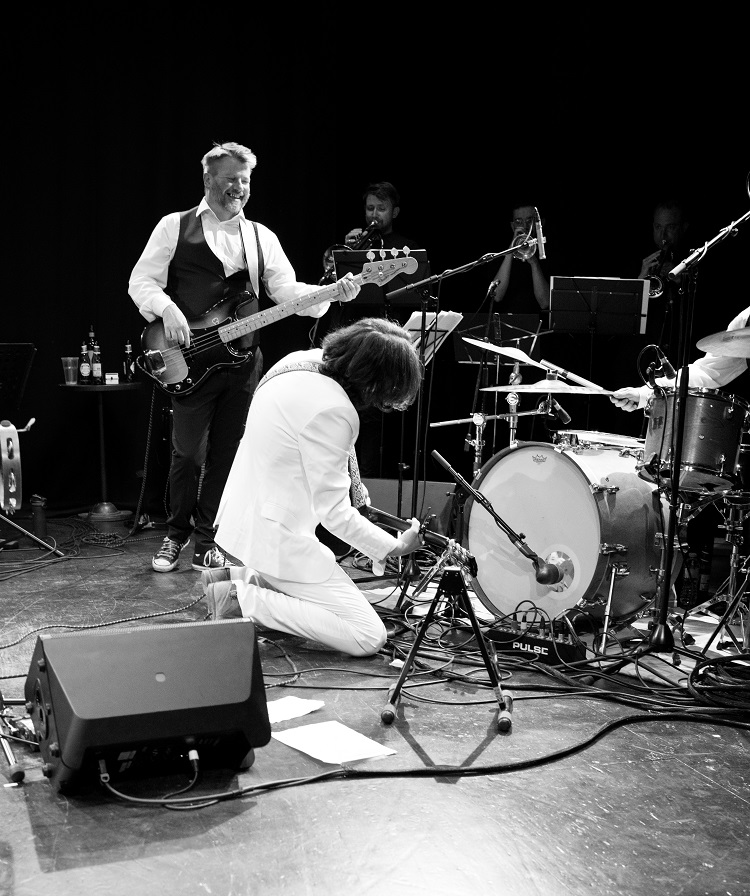
Pete’s a very interesting songwriter. He’s a former member of Case Hardin (with the brilliant Jim Maving) and, as a Scottish songwriter living in and writing about London, there’s an inevitable comparison with the late Gerry Rafferty. ‘Leo’ is a full-blooded production featuring a rock band, string section and a horn section with arrangements by Joe Bennett creating some really interesting textures to back up Pete’s fascinating narratives. If you want two highlights, ‘Side III of London Calling’ paints a post-gig picture of a seedy musician on the pull, while ‘Leonard’s Bar’ is the classic ‘one last job’ petty criminal story. The album hangs together really well and the songs sound great in a live setting. And Pete’s a nice guy as well.
‘The Party’s Over’ – Rob Heron & the Teapad Orchestra
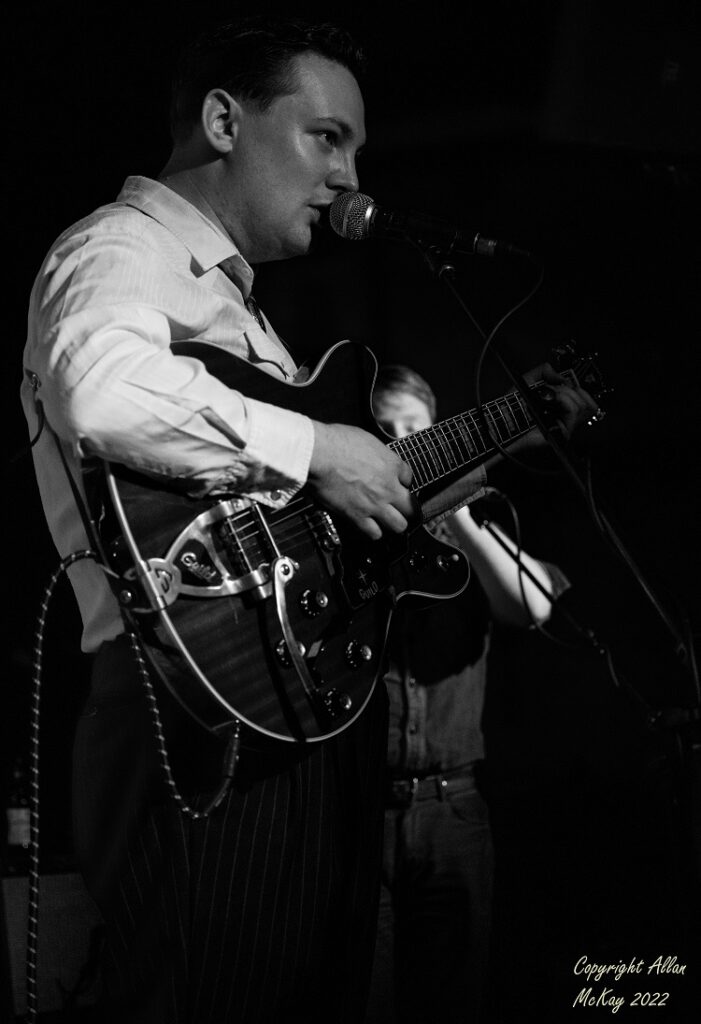
So let’s get this over with first, Rob’s a great guy as well. He read the Music Riot review of this album just before going on stage at the London gig at The Lexington and made a couple of references to it on stage. The album continues Rob’s tradition of eclectic musical influences and even a few political references as well. ‘Snip Snap Snout’ is nonsense zydeco (which is exactly what Rob intended it to be), ‘The Horse That You Rode In On’ channels the Frankie Laine classic ‘Rawhide’ and the light-hearted ‘The Doctor Told Me’ pulls in the House of the Black Gardenia horns to create a New Orleans funeral band feel. I did say it was eclectic. And, like everyone else mentioned here, you really should see Rob & the Teapad Orchestra live – they’re phenomenal.
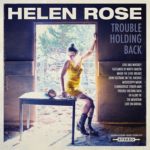 A few words about MusicRiot before we get underway. You won’t find any negative reviews here. There’s way too much negativity everywhere around us; why add to that? We pick music that we like, live or recorded and we tell you about it; nice and simple. Well, it is most of the time, until you bump up against an album like “Trouble Holding Back”. It’s Helen Rose’s debut album, it’s a labour of love and she’s poured a lot of herself into it. Which brings us back to negativity and how we try to avoid it.
A few words about MusicRiot before we get underway. You won’t find any negative reviews here. There’s way too much negativity everywhere around us; why add to that? We pick music that we like, live or recorded and we tell you about it; nice and simple. Well, it is most of the time, until you bump up against an album like “Trouble Holding Back”. It’s Helen Rose’s debut album, it’s a labour of love and she’s poured a lot of herself into it. Which brings us back to negativity and how we try to avoid it.
There are some truly outstanding songs on this album but (and here’s my subjectivity cop-out kicking in) there are a couple that I just don’t get. I’m not dwelling on them, but I can’t see the need for another cover of “When the Levee Breaks” and the title track, to my ears, is an over-cooked glam rock stomper. So let’s look at the positives.
The album’s second song “Flatlands of North Dakota” is a little classic, combining echoes of Bobbie Gentry with sweeping string arrangements and a nod in the direction of Roy Budd’s “Get Carter” theme. Match that up with a message about mothers doing what they have to do to bring up a family and you have a great song. “Mississippi Moon” is subtle, lush and atmospheric with a tasteful close-miked sax solo and not too many frills and “Oh Glory Be” is a full-on rock ‘n’ soul production with a horn section and a call and response gospel refrain. And let’s not forget the beautiful stripped-back version of Steve Earle’s powerful indictment of strip-mining, “The Mountain”. There’s more than enough good material here to make this well worth listening to.
“Trouble Holding Back” is released on Friday January 25th 2019 on Monkey Room Music (MRM 0008).
This is a very likeable album. The title track, for a start. Just the title defines a bad day at the office.
Given the fact that the guy is from Texas, is quite old, plays Texan country-tinged bluesy rock n roll, has got a beard and has a song on the album about a Buick you are dragged kicking and screaming towards the conclusion that this is going to be infused with more than a tad of ZZ Top, sold as seen, if you like. And indeed there is.
But it isn’t quite that simple.
The album leaps out of the box with the incendiary “Three Fifty Seven”, a snarling ‘death row’ blues with raw chunks of harmonica from Dan Moser, just one of a number of damn fine players featured on this album, which is as bitter and scary in the lyrics as it is raw and jagged in the playing. “Power in the Snake” has lyrical nods to Steve Earle but for me, you could hand that song to George Thorogood and the Destroyers tomorrow and they’d do a job on that for you.
He does a tidy line in ironic lyrics as well, with “The Wages of Sin” sounding quite ‘churchy’, on the surface, but actually, not. “Pestilence and Locusts”sounds a bit like a Crazy World Of Arthur Brown B side as song titles go but actually it’s a rather sad, rather bitter ditty about what happens when ‘the thing you love most becomes the thing that drags you down’.
And ‘Big Ol Buick’ does what it says on the tin and is an enjoyable listen.
And already you can sense a ‘But….’, right?
So what stops this from being the kind of album you ring up your mate and say ‘you’ve REALLY got to hear this…’ always assuming your mate is into that sort of ‘Americana’ thing, which in my view all right-thinking people should be.
Well, conveniently for me, Mr. LeMasters has been asked to review his own album by his PR man. And this is what he says.
‘I write songs with the intent that they will be songs that I perform at my shows. If ever I write a song which is good enough and it gets heard by the right person, some big-time singer might record it…’
And at this level, this all works just fine. You could take this bunch of songs out on the road in the good ol’ US of A in the bars, clubs and roadhouses and they’d work perfectly fine with the voice of Dick LeMasters doing the honours. The album has some very fine new songs, the songs are extremely well played (there is some really nice guitar and harmonica work on this, it really is a joy in places; I mean, “River Blues” is really rather special, for example) but his voice really is an adequate tool for carrying the songs and nothing more. So, and by the guy’s own admission, this works pretty damn well as a demo for his songs, a shop window for ‘big-time’ singers to check out his wares. And for his sake and for the sake of an extremely enjoyable if not exactly fashionable music genre, I hope someone does. At the very least he deserves a round of applause for not deciding to spend the rest of his life knocking out ZZ Top covers when no doubt he could.
But there’s your problem. Well, his, anyway – and the reason why this is a tough one to review.
Apart from the fact he’s already written his own review with candour and accuracy.
3.5 Stars out of 5.
Self-released and out now.
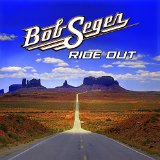 There’s one thing you can say about a Bob Seger album; you know what you’re going to get. What you get is Bob’s gravelly, lived-in voice, a couple of out-and-out rockers, probably a couple of ballads, a couple of mid-tempo anthems, a cover or two (carefully chosen to sound like they could have been written by Bob himself) and maybe something a little bit funky as well. You would expect nostalgic and maybe wistful lyrics about growing up in the Midwest in the sixties, or life on the road and fairly standard rock arrangements spritzed up by a bit of sax and maybe some tasteful Bill Payne piano. So you would expect what is probably his final studio album to be a bit more of the same, and you would be perfectly happy at that.
There’s one thing you can say about a Bob Seger album; you know what you’re going to get. What you get is Bob’s gravelly, lived-in voice, a couple of out-and-out rockers, probably a couple of ballads, a couple of mid-tempo anthems, a cover or two (carefully chosen to sound like they could have been written by Bob himself) and maybe something a little bit funky as well. You would expect nostalgic and maybe wistful lyrics about growing up in the Midwest in the sixties, or life on the road and fairly standard rock arrangements spritzed up by a bit of sax and maybe some tasteful Bill Payne piano. So you would expect what is probably his final studio album to be a bit more of the same, and you would be perfectly happy at that.
Well, “Ride Out” looks like a Bob Seger album and from the opening track, John Hiatt’s “Detroit Made”, it sounds like a Bob Seger album. He’s always been keen on a good rocker to start the proceedings; “Get out of Denver”, “Rock and Roll never Forgets” and “Hollywood Nights” are all opening tracks on “Seven”, Night Moves” and “Stranger in Town” respectively and his romp through Hiatt’s song is right in the comfort zone. “Hey Gipsy” is a straight Chicago blues with guitar and bass playing in unison; it’s a bit of fun but it’s a bit of a departure because, despite the blues influences, you don’t often hear a straight blues on a Bob Seger album.
The cover of Steve Earle’s “The Devil’s Right Hand” is where things start to move out of established Seger territory. It has an Americana/roots feel with some lovely 12-string guitar and Earle’s use of half-line repetitions lends the song a very traditional feel. Bob has had a reputation for solidarity with blue–collar workers in the past but has usually avoided overt political lyrics (certainly during his peak period), so “Ride Out” comes as a surprise with its stabs at the media, high finance and politicians, over a chugging beat punctuated by discordant four-piece horn fills. What comes next is a real surprise; it’s a cover of Australian country stars Shane Nicholson and Kasey Chambers’ “Adam and Eve”; the arrangement is pure dustbowl country with banjo, mandolin, harmonium and fiddle backing Bob and Laura Creamer’s vocal duet. It’s raw, earthy and powerful and the harmonies are superb.
If you’re not already surprised and confused, the next song was written by one of America’s most politicised songwriters; but it’s a Woody Guthrie love song taken from the Wilco/Billy Bragg “Mermaid Avenue” project which was featured on Bob’s 2013 tour. It’s a big production again with violin, Hammond and a horn section and, I know Seger diehards will probably hate this comparison, but it wouldn’t sound out of place on Springsteen’s “We Shall Overcome” album. “”It’s Your World” is another lyrical departure, tackling environmental and financial issues over a sparse piano and guitar-based arrangement; it’s powerful stuff. “All of the Roads” is classic, “Against the Wind”-style Seger, although the violin gives it a more roots feel, creating a nice counterpoint to the Hammond B3. The ballad, “You Take Me In”, a mid-tempo ballad with a fairly traditional Seger arrangement and very upfront vocal would sit perfectly on any Seger album between 1975 and 1995 and sets the scene nicely for a powerful song to close out the album.
And “Gates of Eden” is a powerful song; it’s a slow, almost funereal, revelation of a personal epiphany which builds up with strings, a full rock band and huge backing vocals to a climax before fading out on synth strings. It’s like nothing I’ve ever heard from Bob Seger and it finishes the album as perfectly as a full stop at the end of a sentence. If this is the last album of new Bob Seger material, then “Gates of Eden” is a perfect ending.
The three additional songs on the deluxe edition of the album are all Bob Seger originals. “Listen” and “Let the Rivers Run” are both personal songs, while “The Fireman’s Talkin’” addresses environmental issues again. While I understand the marketing reasons for “Deluxe” editions of albums, in this case it’s an act of vandalism; “Gates of Eden” is clearly intended as a closing song for the album (and perhaps a career) and it’s totally inappropriate to add any songs after that punctuation mark. There’s nothing wrong with the songs, but maybe an additional EP or a download would have worked better.
This is a long way from a comfortable album to keep the fans happy without rocking the boat; this is a set of songs that have the feel of an artist disregarding expectations by using traditional American musical idioms while addressing his concerns about the state of the human race in the twenty-first century before it’s too late. As much as I love Bob Seger’s work, I really wasn’t expecting that; this could be a perfect swansong.
Available on import now.


